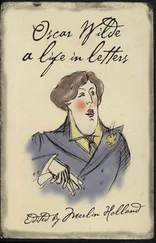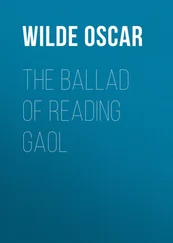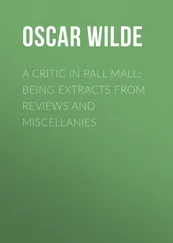Oscar Wilde - Reviews
Здесь есть возможность читать онлайн «Oscar Wilde - Reviews» — ознакомительный отрывок электронной книги совершенно бесплатно, а после прочтения отрывка купить полную версию. В некоторых случаях можно слушать аудио, скачать через торрент в формате fb2 и присутствует краткое содержание. Жанр: foreign_home, literature_19, cinema_theatre, foreign_prose, на английском языке. Описание произведения, (предисловие) а так же отзывы посетителей доступны на портале библиотеки ЛибКат.
- Название:Reviews
- Автор:
- Жанр:
- Год:неизвестен
- ISBN:нет данных
- Рейтинг книги:3 / 5. Голосов: 1
-
Избранное:Добавить в избранное
- Отзывы:
-
Ваша оценка:
- 60
- 1
- 2
- 3
- 4
- 5
Reviews: краткое содержание, описание и аннотация
Предлагаем к чтению аннотацию, описание, краткое содержание или предисловие (зависит от того, что написал сам автор книги «Reviews»). Если вы не нашли необходимую информацию о книге — напишите в комментариях, мы постараемся отыскать её.
Reviews — читать онлайн ознакомительный отрывок
Ниже представлен текст книги, разбитый по страницам. Система сохранения места последней прочитанной страницы, позволяет с удобством читать онлайн бесплатно книгу «Reviews», без необходимости каждый раз заново искать на чём Вы остановились. Поставьте закладку, и сможете в любой момент перейти на страницу, на которой закончили чтение.
Интервал:
Закладка:
3. Books not to read at all, such as Thomson’s Seasons , Rogers’s Italy , Paley’s Evidences , all the Fathers except St. Augustine, all John Stuart Mill except the essay on Liberty , all Voltaire’s plays without any exception, Butler’s Analogy , Grant’s Aristotle , Hume’s England , Lewes’s History of Philosophy , all argumentative books and all books that try to prove anything.
The third class is by far the most important. To tell people what to read is, as a rule, either useless or harmful; for, the appreciation of literature is a question of temperament not of teaching; to Parnassus there is no primer and nothing that one can learn is ever worth learning. But to tell people what not to read is a very different matter, and I venture to recommend it as a mission to the University Extension Scheme.
Indeed, it is one that is eminently needed in this age of ours, an age that reads so much, that it has no time to admire, and writes so much, that it has no time to think. Whoever will select out of the chaos of our modern curricula ‘The Worst Hundred Books,’ and publish a list of them, will confer on the rising generation a real and lasting benefit.
After expressing these views I suppose I should not offer any suggestions at all with regard to ‘The Best Hundred Books,’ but I hope you will allow me the pleasure of being inconsistent, as I am anxious to put in a claim for a book that has been strangely omitted by most of the excellent judges who have contributed to your columns. I mean the Greek Anthology . The beautiful poems contained in this collection seem to me to hold the same position with regard to Greek dramatic literature as do the delicate little figurines of Tanagra to the Phidian marbles, and to be quite as necessary for the complete understanding of the Greek spirit.
I am also amazed to find that Edgar Allan Poe has been passed over. Surely this marvellous lord of rhythmic expression deserves a place? If, in order to make room for him, it be necessary to elbow out some one else, I should elbow out Southey, and I think that Baudelaire might be most advantageously substituted for Keble.
No doubt, both in the Curse of Kehama and in the Christian Year there are poetic qualities of a certain kind, but absolute catholicity of taste is not without its dangers. It is only an auctioneer who should admire all schools of art.
TWELFTH NIGHT AT OXFORD
( Dramatic Review , February 20, 1886.)
On Saturday last the new theatre at Oxford was opened by the University Dramatic Society. The play selected was Shakespeare’s delightful comedy of Twelfth Night , a play eminently suitable for performance by a club, as it contains so many good acting parts. Shakespeare’s tragedies may be made for a single star, but his comedies are made for a galaxy of constellations. In the first he deals with the pathos of the individual, in the second he gives us a picture of life. The Oxford undergraduates, then, are to be congratulated on the selection of the play, and the result fully justified their choice. Mr. Bourchier as Festa the clown was easy, graceful and joyous, as fanciful as his dress and as funny as his bauble. The beautiful songs which Shakespeare has assigned to this character were rendered by him as charmingly as they were dramatically. To act singing is quite as great an art as to sing. Mr. Letchmere Stuart was a delightful Sir Andrew, and gave much pleasure to the audience. One may hate the villains of Shakespeare, but one cannot help loving his fools. Mr. Macpherson was, perhaps, hardly equal to such an immortal part as that of Sir Toby Belch, though there was much that was clever in his performance. Mr. Lindsay threw new and unexpected light on the character of Fabian, and Mr. Clark’s Malvolio was a most remarkable piece of acting. What a difficult part Malvolio is! Shakespeare undoubtedly meant us to laugh all through at the pompous steward, and to join in the practical joke upon him, and yet how impossible not to feel a good deal of sympathy with him! Perhaps in this century we are too altruistic to be really artistic. Hazlitt says somewhere that poetical justice is done him in the uneasiness which Olivia suffers on account of her mistaken attachment to Orsino, as her insensibility to the violence of the Duke’s passion is atoned for by the discovery of Viola’s concealed love for him; but it is difficult not to feel Malvolio’s treatment is unnecessarily harsh. Mr. Clark, however, gave a very clever rendering, full of subtle touches. If I ventured on a bit of advice, which I feel most reluctant to do, it would be to the effect that while one should always study the method of a great artist, one should never imitate his manner. The manner of an artist is essentially individual, the method of an artist is absolutely universal. The first is personality, which no one should copy; the second is perfection, which all should aim at. Miss Arnold was a most sprightly Maria, and Miss Farmer a dignified Olivia; but as Viola Mrs. Bewicke was hardly successful. Her manner was too boisterous and her method too modern. Where there is violence there is no Viola, where there is no illusion there is no Illyria, and where there is no style there is no Shakespeare. Mr. Higgins looked the part of Sebastian to perfection, and some of the minor characters were excellently played by Mr. Adderley, Mr. King-Harman, Mr. Coningsby Disraeli and Lord Albert Osborne. On the whole, the performance reflected much credit on the Dramatic Society; indeed, its excellence was such that I am led to hope that the University will some day have a theatre of its own, and that proficiency in scene-painting will be regarded as a necessary qualification for the Slade Professorship. On the stage, literature returns to life and archæology becomes art. A fine theatre is a temple where all the muses may meet, a second Parnassus, and the dramatic spirit, though she has long tarried at Cambridge, seems now to be migrating to Oxford.
Thebes did her green unknowing youth engage;
She chooses Athens in her riper age.
THE LETTERS OF A GREAT WOMAN
( Pall Mall Gazette , March 6, 1886.)
Of the many collections of letters that have appeared in this century few, if any, can rival for fascination of style and variety of incident the letters of George Sand which have recently been translated into English by M. Ledos de Beaufort. They extend over a space of more than sixty years, from 1812 to 1876, in fact, and comprise the first letters of Aurore Dupin, a child of eight years old, as well as the last letters of George Sand, a woman of seventy-two. The very early letters, those of the child and of the young married woman, possess, of course, merely a psychological interest; but from 1831, the date of Madame Dudevant’s separation from her husband and her first entry into Paris life, the interest becomes universal, and the literary and political history of France is mirrored in every page.
For George Sand was an indefatigable correspondent; she longs in one of her letters, it is true, for ‘a planet where reading and writing are absolutely unknown,’ but still she had a real pleasure in letter-writing. Her greatest delight was the communication of ideas, and she is always in the heart of the battle. She discusses pauperism with Louis Napoleon in his prison at Ham, and liberty with Armand Barbes in his dungeon at Vincennes; she writes to Lamennais on philosophy, to Mazzini on socialism, to Lamartine on democracy, and to Ledru-Rollin on justice. Her letters reveal to us not merely the life of a great novelist but the soul of a great woman, of a woman who was one with all the noblest movements of her day and whose sympathy with humanity was boundless absolutely. For the aristocracy of intellect she had always the deepest veneration, but the democracy of suffering touched her more. She preached the regeneration of mankind, not with the noisy ardour of the paid advocate, but with the enthusiasm of the true evangelist. Of all the artists of this century she was the most altruistic; she felt every one’s misfortunes except her own. Her faith never left her; to the end of her life, as she tells us, she was able to believe without illusions. But the people disappointed her a little. She saw that they followed persons not principles, and for ‘the great man theory’ George Sand had no respect. ‘Proper names are the enemies of principles’ is one of her aphorisms.
Читать дальшеИнтервал:
Закладка:
Похожие книги на «Reviews»
Представляем Вашему вниманию похожие книги на «Reviews» списком для выбора. Мы отобрали схожую по названию и смыслу литературу в надежде предоставить читателям больше вариантов отыскать новые, интересные, ещё непрочитанные произведения.
Обсуждение, отзывы о книге «Reviews» и просто собственные мнения читателей. Оставьте ваши комментарии, напишите, что Вы думаете о произведении, его смысле или главных героях. Укажите что конкретно понравилось, а что нет, и почему Вы так считаете.












